Top 5 Free Plagiarism Detection Tools
Plagiarism is taking another person's ideas or work and claim as one's own work. It is a very serious problem for academics and may lead to disqualification of work or even dispelling from the institution. Plagiarism is also very important in Journaling and Publishing business and even for bloggers.
Today we take a look at the best free plagiarism checking tools.
1- Plagramme
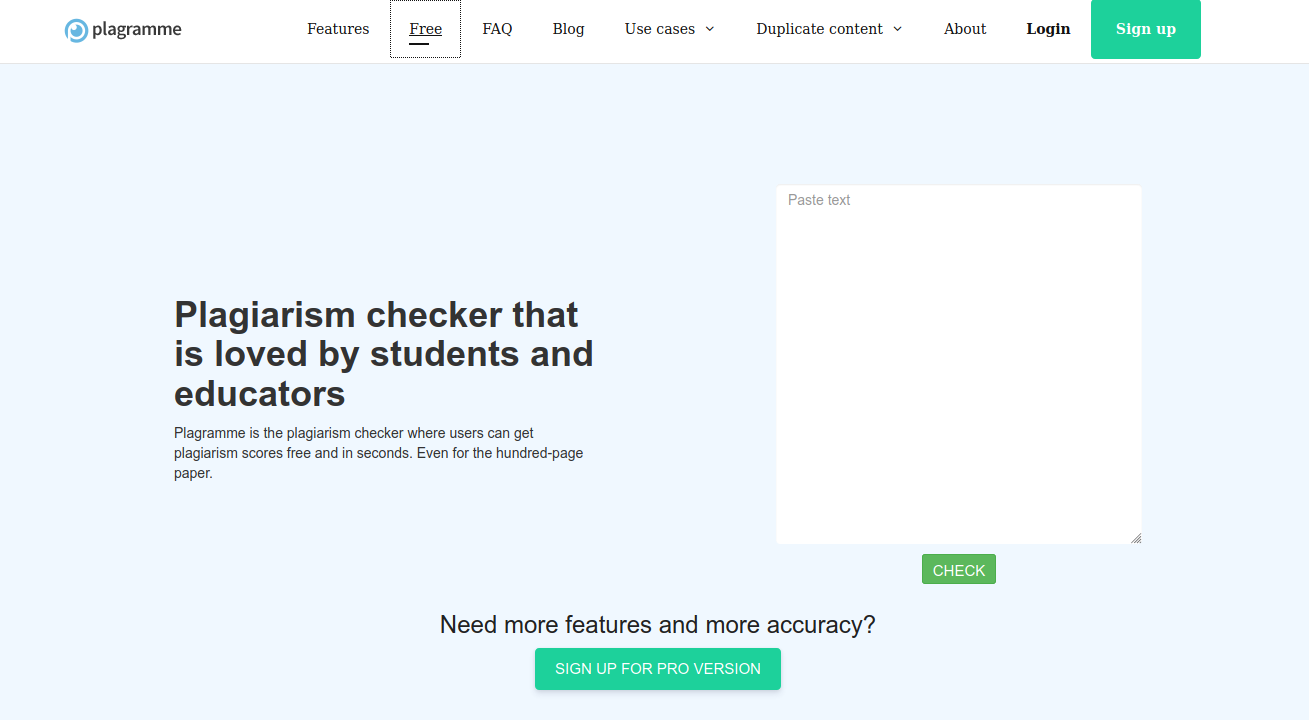
Plagramme offers a free and paid cloud-based plagiarism detection services. It supports 129 languages. The free service is divided into two types of accounts; Standard account and Educator's account. The Standard account has a limited search functionality. The Educator's account has full functionality as the paid account; a huge database of billions of web pages and more than 80 millions of scholarly articles from the most popular scientific publishers such as Oxford University Press, Springer, Wiley, and others.
The Educator's account is available freely for Teachers, Professors and Lecturers from schools and universities worldwide but you must first provide a link to a web page of your institution that has your email which you will register with.
2- SmallSEOTools Plagiarism Checker
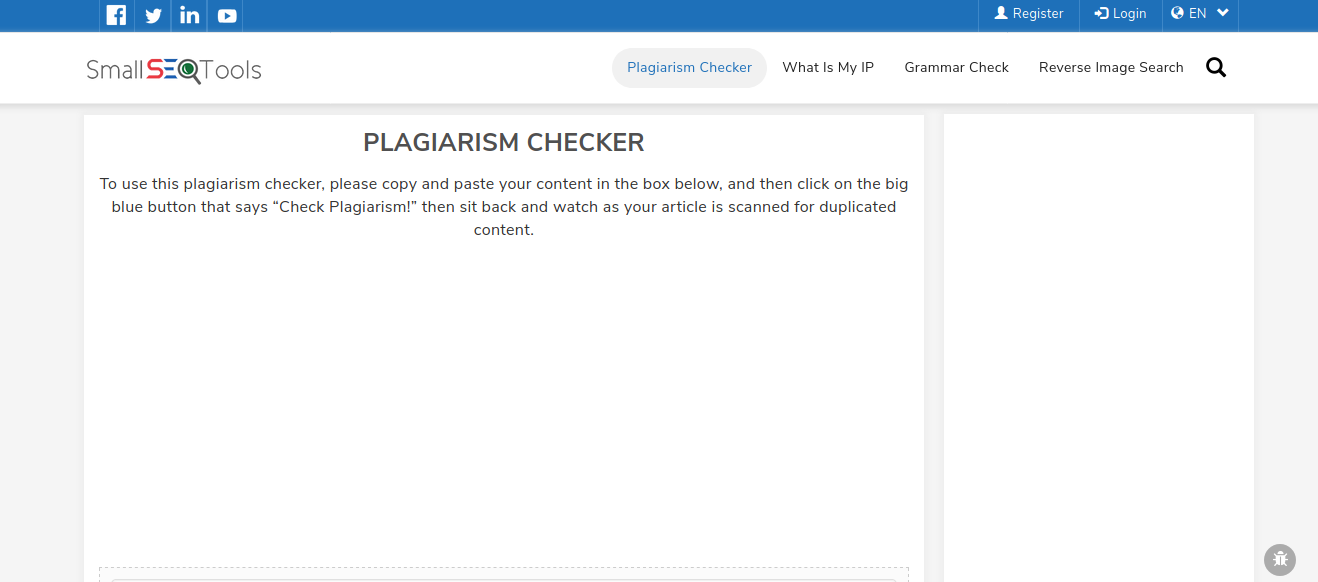
SmallSEOTools Plagiarism Checker is a free cloud-based service that checks plagiarism against billions of web pages. It has a limit of 1000 words per search, but you have the unlimited number of searches, and you don't have to register to use the service. It gives you the option of uploading a file from your local machine or from Google Drive or dropbox. It supports tex, txt, doc, docs, rtf, odt and pdf file types. You can also exclude a specific URL from being checked for plagiarism. You can also check a web page URL for plagiarism directly.
They offer checking for plagiarism in English, Russian, French, Italian, German, Japanese, Chinese, Spanish, Portuguese.
SmallSEOTools offers Android and iOS apps for their Plagiarism Checking service. They also offer paid services in the form of WordPress plugin and Plagiarism Checker API which enables you to integrate Plagiarism Checking into your website.
3- Plag Patrol
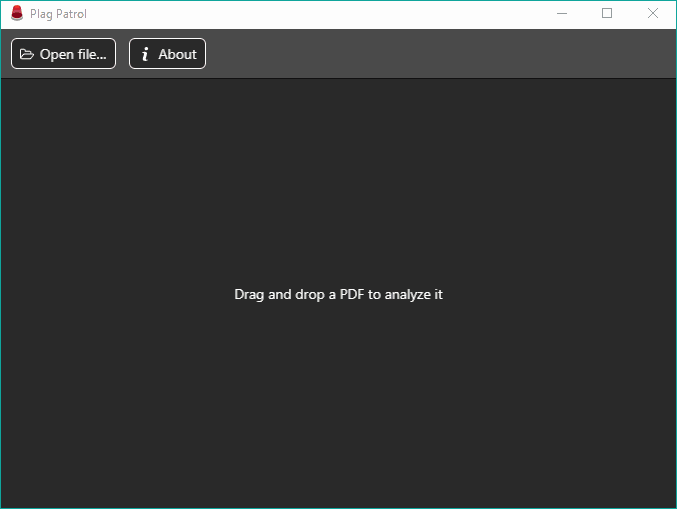
Plag Patrol is a free and open-source program that helps in plagiarism detection. It checks pdf documents for hidden characters. Some people try to decieve plagiarism detection tools by hiding some characters through altering characters maps and color variations. Plag Patrol is considered an added layer of security for plagiarism detection. It is available as an installation file for Windows, macOS and Linux.
4- WCopyfind
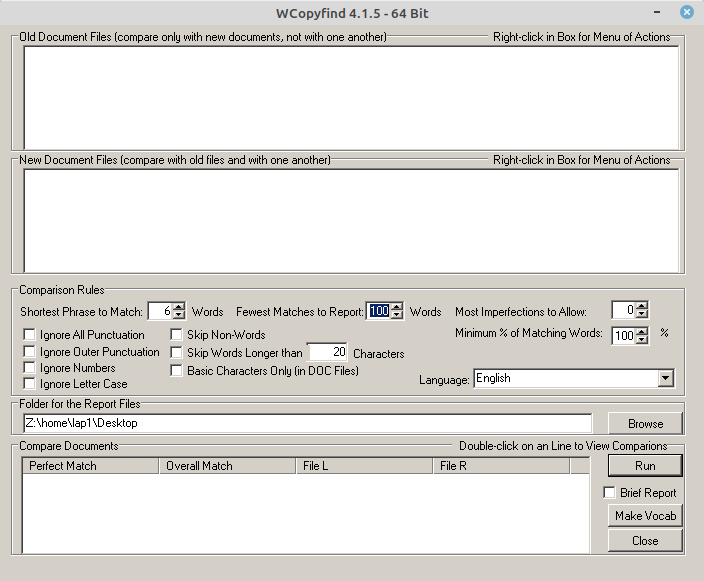
WCopyfind is a free open source program that compares document files for similarities. It is available as 32bit and 64bit Windows executable. It is not an install file (It runs directly). It can run under Linux using Wine.
It supports doc, docx, txt, rtf, htm, html and pdf file types. It supports text pdf files only. If the pdf's text is in the form of images, you need to convert it first to text using OCR (Optical Character Recognition) program. WCopyfind is not very accurate when analyzing PDF files, so you need to put pdftotext executable in the same folder as WCopyfind to increase its accuracy.
There are some interesting uses of WCopyfind which are listed in the website as:
- It can compare news services for shared headlines or content.
- It can find which words are most common in the news.
- It can look for lobbyist language appearing directly in finished legislation.
- It can find duplicate communications coming from a war zone.
- It can list and count the matching words between two documents.
- It can check your own writing for bad habits, such as reusing pet phrases.
5- MOSS (Measure Of Software Similarity)
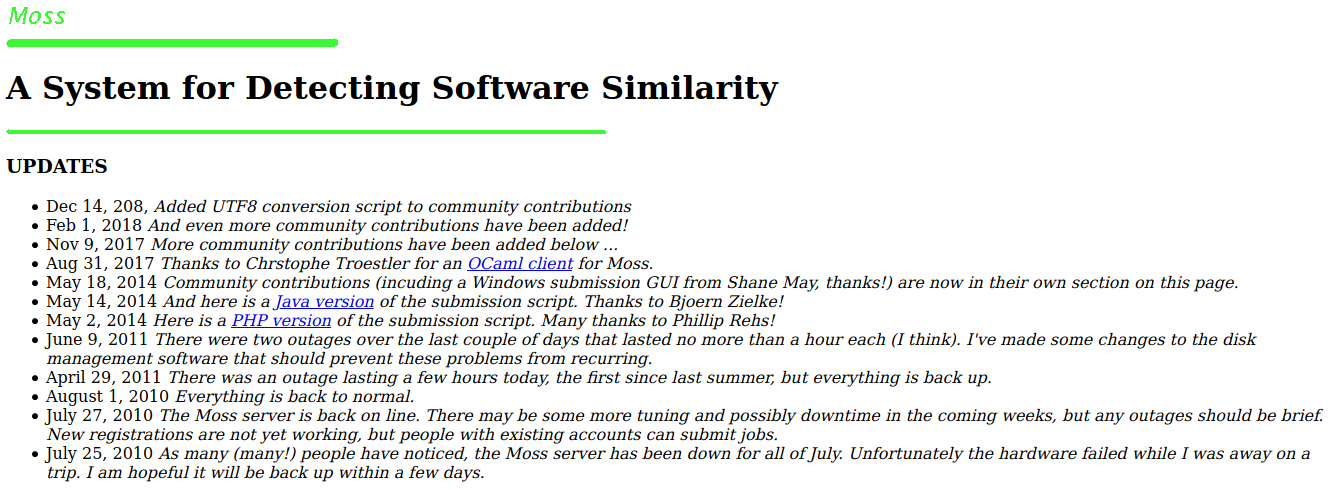
MOSS (Measure Of Software Similarity) is a free service porvided by Stanford University for non-commercial use. It was first developed in 1994 to detect plagiarism is source code. It is suitable for teachers of programming classes.
Although it was available at first for staff of programming courses only, now anyone can register for a free account.
Moss can currently analyze code written in the following languages:
C, C++, Java, C#, Python, Visual Basic, Javascript, FORTRAN, ML, Haskell, Lisp, Scheme, Pascal, Modula2, Ada, Perl, TCL, Matlab, VHDL, Verilog, Spice, MIPS assembly, a8086 assembly, a8086 assembly, HCL2.
Conclusion
Whether you are a teacher, student, publisher or a blogger; using a plagiarism detection tool is of great importance because these tools can greatly save time and automate most of the effort needed to insure the quality of work.


